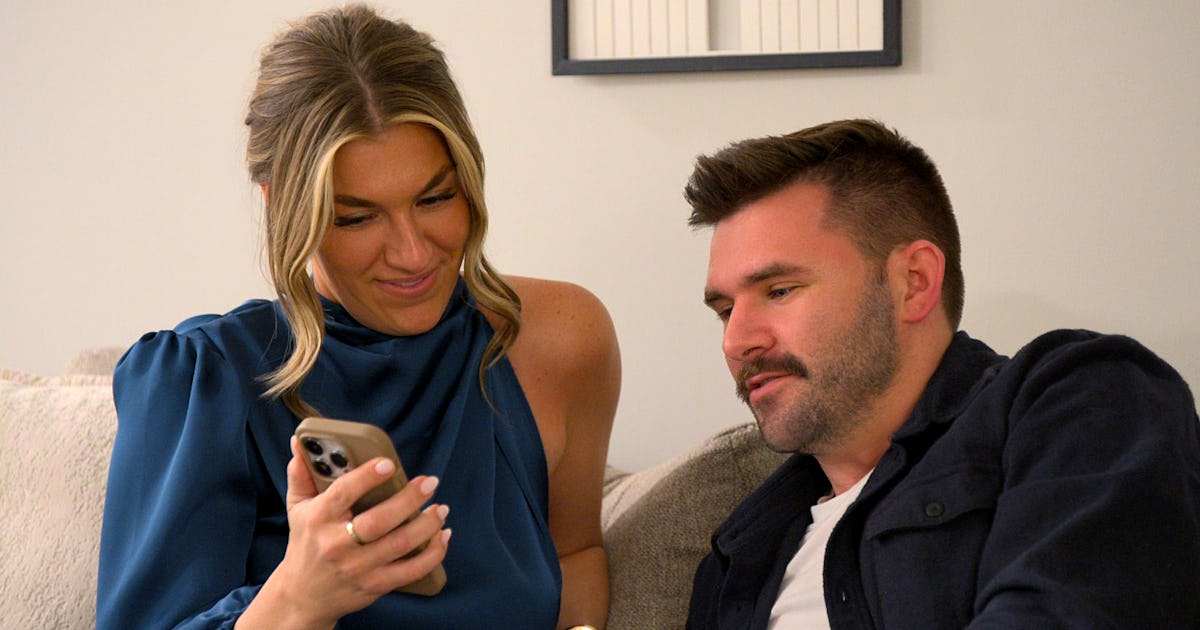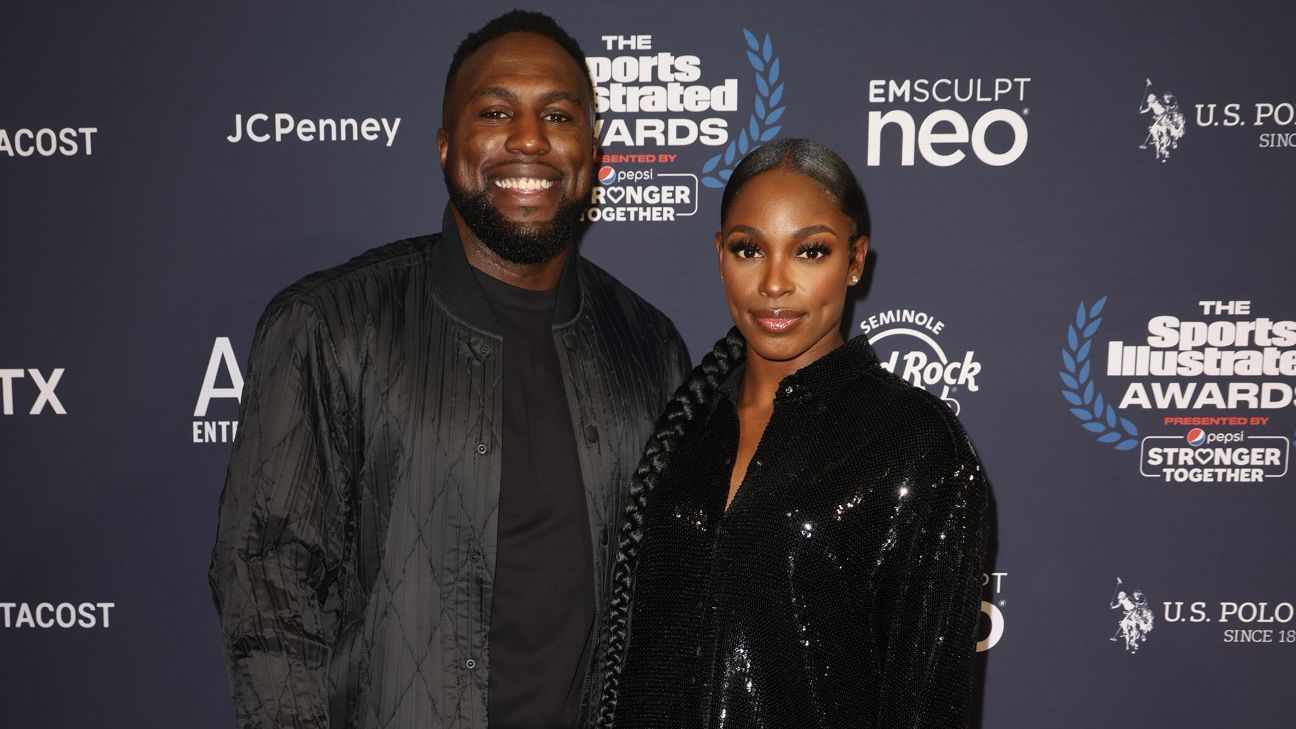Relationships
Relationships
[ follow ]
#family-relationships #relationship-dynamics #divorce #communication #emotional-intimacy #friendship
fromFast Company
3 hours ago'Alpine divorce' explained: The tragic story behind the viral phrase
The phrase has gained traction on social media in recent weeks following news of a climber's guilty verdict after he left his girlfriend behind on a hike, where she froze to death on Austria's highest mountain. The phrase is said to have originated from the 1893 short story An Alpine Divorce by Robert Barr, in which an unhappy husband plots to kill his wife by pushing her off a mountain during a trip to the Swiss Alps.
Relationships
Relationships
fromBusiness Insider
11 hours agoI lost my job as a tech exec - and patience with my wife's impractical dream.
A laid-off executive resents his artist wife's modest income and career pursuits, but needs honest communication with her rather than assumptions about gender roles and financial responsibility.
Relationships
fromPsychology Today
21 hours agoFrom AI to BFF: Could AI Replace Humans as Friends?
AI chatbots are increasingly replacing human relationships, with over half of adults finding AI companions acceptable and significant portions considering AI romantic partners viable alternatives to human connection.
fromwww.theguardian.com
18 hours agoThe men trying to do friendship, better podcast
It took me a while to realise that actually, the harshness of the banter was a form of intimacy. Men opening up is a really good thing for lots of men. But I think there's also a lot of people who end up feeling stigmatised or even like personal failures because they're not able to or not willing to.
Relationships
fromThe Walrus
9 hours agoWhen My Marriage of 16 Years Ended, I Had to Find My Way Back to Myself | The Walrus
His dad and I were separating, but it was beautiful, because I knew there was someone out there who was better for my husband than me. And when his tears finally stopped, he said that it was true, and it was time for him to say it out loud-that if he was being honest, the partner who was best for him was not a woman but a man.
Relationships
fromIndependent
15 hours agoModern Morals: Would it be wrong to sign up to a sugar daddy site? I'm a single mum and would like to be looked after financially
I'm a single mum of one and I'm really struggling with the general cost of living and the cost of childcare. A friend of mine who lives in London is an SB (sugar baby). She meets older sugar daddies online and they give her really generous gifts.
Relationships
Relationships
fromBusiness Insider
7 hours agoI met a man on the street, and our third date was a 12-day Mediterranean cruise. It was a surreal experience.
A woman met a street musician in Edinburgh, went on two dates including a Paris weekend, then joined him on a 12-day Mediterranean cruise despite barely knowing him.
#family-relationships
fromSilicon Canals
17 hours agoRelationships
I'm 66 and my two sons live twenty minutes away and I haven't seen either of them in six weeks - and the thing I can't explain to anyone is that the distance isn't geographic, it's that they've become polite with me, and polite is the furthest thing from close - Silicon Canals
fromSilicon Canals
21 hours agoPsychology says the person in the family who always loads the dishwasher "their way" and reloads it after someone else tries is displaying these 7 patterns that explain far more than just kitchen preferences - Silicon Canals
Psychologists believe that extremely neat individuals may be attempting to exert control over their environment. When work is overwhelming, relationships are strained, or the world feels unpredictable, that perfectly arranged dishwasher becomes a tiny kingdom where order can reign. It's not really about the dishes—it's about finding one small corner of life where everything goes exactly according to plan.
Relationships
Relationships
fromBusiness Insider
4 hours agoI swore I'd never move back to my hometown. When I became a mom, I changed my mind so I could be close to my parents.
A mysterious illness forced a return to hometown, transforming initial resentment into appreciation for proximity to family support and a fulfilling life with children nearby.
fromMail Online
9 hours agoAverage Brit has sex twice a week (but they wish it was more!)
On average, Brits have 105 sexual encounters per year, equating to roughly two a week. However, their ideal frequency is 144 times a year - about three times a week. The majority of people said they weren't satisfied with the frequency of their sexual activity, with only 22% of women and 26% of men saying they were 'always' satisfied with the amount of sex they were having.
Relationships
Relationships
fromSlate Magazine
4 hours agoI'm Ready for My Big Sexual Awakening. But I'm Searching for a Specific Kind of Guy.
Virginity is not a precious commodity to preserve for one person; instead, prioritize gaining sexual experience, confidence, and skills with partners who respect your pleasure.
Relationships
fromSlate Magazine
10 hours agoMy Husband Said I Didn't Have to Work Once We Had Kids. But There's Been a Major Catch.
Stay-at-home parents should have full financial transparency and access to family accounts regardless of income contribution, ensuring household partnership and preparedness for emergencies.
Relationships
fromwww.mercurynews.com
1 day agoHarriette Cole: People are saying I got engaged too quick
A 35-year-old engaged after five months faces family doubt despite thorough compatibility discussions and intentional relationship building, while another discovers their mother hid a previous marriage for 35 years, raising questions about disclosure and family transparency.
fromBusiness Insider
1 day agoHilary Duff says she divorced when her son was 2 to show him you have to 'fight for your happiness'
I knew from my parents' divorce that I was going to show my kid that you've got to fight for your happiness. And I knew that it was going to be better to do it when he was younger than it was going to be when he was five and aware, or eight and aware.
Relationships
Relationships
fromEntrepreneur
1 day agoNetworking Got Me Nowhere. Here's the Smarter Alternative.
Prioritize genuine curiosity and interest in others over self-promotion; authentic relationships built on honest conversations yield greater professional and personal returns than superficial networking interactions.
fromSilicon Canals
23 hours agoPsychology says women who were always told "you're so independent" as children usually carry these 8 patterns into every relationship - and most of them aren't strengths - Silicon Canals
Through therapy and a lot of self-reflection, I've discovered that those of us who were labeled "so independent" as children often carry specific patterns into our adult relationships. And here's the uncomfortable truth: most of these patterns aren't actually serving us well.
Relationships
Relationships
fromSlate Magazine
1 day agoHelp! I Told My Ex Not to Contact Me for Six Months. Time's Up, and He's Back With a Troubling Request.
A person seeking to reconnect after a breakup must accept a firm boundary when their partner has clearly determined incompatibility, regardless of their willingness to change.
Relationships
fromSlate Magazine
1 day agoThe Guy I Was Hooking Up With Said Something Very Weird About My Hair Down Under. I Can't Look at Him the Same.
A person's body hair grooming choices are valid; unsolicited critical comments from casual partners about appearance warrant reconsidering the relationship.
fromBusiness Insider
1 day agoI used to think living at home as an adult meant going backward. Losing my dad made me realize I was wrong.
Living with family as an adult is often framed as a "failure to launch," but navigating grief at home with my mom and younger sister helped me rethink growth. Living at home in my 20s wasn't easy at first, but after my dad died, living together became a lifeline that transformed my understanding of what adulthood truly means.
Relationships
fromWIRED
1 day agoWho's Your Daddy? A Chatbot
A lot of the times in dom-sub dynamics, when the submissive misbehaves-if it's consented to-you will have a punishment. You want something specific to fit the crime, basically. It's like a fresh set of eyes on your relationship. AI represents a unique evolution in how power is distributed for people into bondage and discipline, dominance and submission, and sadism and masochism-BDSM.
Relationships
fromPsychology Today
1 day agoDoes Positive Body Image Alone Improve One's Sex Life?
Many people who struggle with sexual connection, low desire, or relationship satisfaction may not be struggling with the love they feel for a partner or the level of commitment they have to their romantic relationship(s). What they may secretly be challenged by is the lack of comfort and safety they have in their own skin.
Relationships
fromSlate Magazine
1 day agoHelp! I Just Found Out I Did Something Awful at My Friend's Wedding. I'm Mortified.
My former life as a lawyer required accounting for time in six-minute increments, sometimes confronting the fact that I'd derailed and taken way too long to research something that turned out to be the wrong question. Something similar happened here when I looked up and realized I'd lost 30 minutes scouring wedding related message boards to figure out how one would obtain a suit in his exact size without paying for it.
Relationships
Relationships
fromFast Company
2 days agoTinder says Gen Z still believes in true love-they just want a soft launch first (exclusive)
Gen Z maintains strong belief in true love and marriage at higher rates than older generations, but pursues relationships through smaller commitments and online interactions rather than traditional milestones.
fromSilicon Canals
2 days agoA relationship study finds what actually raises happiness after 50: cohabiting vs marrying - Silicon Canals
This new work argues something very simple: after fifty, moving in together tends to lift life satisfaction, while marrying after you already live together does not add much, on average. The study's message is more specific. It's about transitions and how people's well-being shifts around those transitions.
Relationships
Relationships
fromBusiness Insider
2 days agoThe golden age of dating apps is over. Now finding a match can cost $20 a month.
Dating apps have shifted from free platforms to heavily paywalled services since the pandemic, reducing match quality while increasing costs that users pay despite diminishing returns.
Relationships
fromSlate Magazine
2 days agoMy Dying Husband Has One Final Wish. I Don't Think I Can Give Him That.
An 80-year-old couple faces conflicting priorities: one spouse wants expensive international travel for end-of-life experiences while the other prioritizes financial reserves for anticipated long-term care costs.
Relationships
fromSilicon Canals
2 days agoThe loneliest boomers aren't the ones who live alone - they're the ones who spent fifty years in marriages and careers where they were loved and respected for qualities they never actually possessed - Silicon Canals
Men who adopt rigid provider identities for decades often experience profound loneliness in retirement when those roles disappear, even within marriages.
fromInsideHook
2 days agoIs This the Year You Get Back to the Basics of Sex?
In the past, when we've done these analyses, we've seen couples express an interest in bondage play or sensory play. But this year, we're almost seeing a shift towards getting back to basics. I found it so interesting that regardless of gender, age or where you live, people want more oral sex.
Relationships
fromwww.mercurynews.com
2 days agoAsking Eric: We gave a homeless man $200, and I didn't foresee how he'd spend it
We don't get to choose how other people make use of our gifts, especially strangers. Since you don't have a relationship with Ron beyond these very generous gifts, you're not in a position to safeguard him. He's not shared this part of his life with you, and you heard about the supposed scam from others, not from Ron himself.
Relationships
Relationships
fromSlate Magazine
2 days agoI Have a Sex Agreement With My Husband. But He Is Super Judgmental Every Time I Do It.
In long-term open relationships, partners may struggle with emotional discomfort about arrangements they intellectually accept, requiring ongoing communication and realistic expectations about imperfection.
fromSlate Magazine
2 days agoI'm Totally Burnt Out on Work. I Know How I Can Get Some Freedom, But My Friend Warns That It'll Ruin Me.
Once you withdraw from your 401(k) early, taxes (24 percent federal, plus applicable state taxes) and the 10 percent early-withdrawal penalty will take a big chunk of that $80,000. Your remaining funds-about $50,000-might still take you far, but also might go faster than you think.
Relationships
fromLondon Business News | Londonlovesbusiness.com
2 days agoWhat really makes a relationship genuine in the eyes of the home office - London Business News | Londonlovesbusiness.com
The Home Office does not expect a perfect relationship. It looks for signs that your relationship is real, ongoing and serious. Caseworkers check whether you have built a life together, even if you currently live in different countries. They want to see consistency across your evidence. Dates must match. Travel history must make sense. Your statements must align with your documents.
Relationships
Relationships
fromBusiness Insider
2 days agoMy boyfriend couldn't get leave from the Army for our wedding. We decided to get married with a virtual ceremony.
A couple separated by 2,800 miles conducted a legal online marriage ceremony after seven months of dating when military service prevented in-person wedding plans.
Relationships
fromSilicon Canals
2 days ago9 habits from growing up lower middle class that look like cheapness but are actually intelligence - Silicon Canals
Working-class financial habits like repairing items, bulk buying, and careful spending develop problem-solving skills and resilience that become valuable professional assets in adulthood.
Relationships
fromSlate Magazine
4 days agoHelp! My Boyfriend's Daughter Is Asking Me Some Uh, Very Personal Questions About Her Dad
Have the boyfriend address and investigate his daughter's inappropriate sexual questions; they may reflect boundary-testing or possible sexual abuse and need parental intervention.
fromSlate Magazine
4 days agoMy Boyfriend Regularly Spends $1,000 on Dinner. This Might Be a Problem.
But also, I do not want to spend $1,000 on dinner! I'm the first person in my family to go to university and to make a salary like this. I am supporting my parents and paying my sister's tuition. I'm very frugal and save every dollar I can, because there's no safety net except for what I've saved. I do all this happily, this was always my plan.
Relationships
Relationships
fromIndependent
4 days agoAsk Allison: I want my husband to have therapy like I did, but he thinks he's perfect and all our problems are my fault
Encouraging a partner to try therapy can improve personal growth and strengthen marriage, parenting, and friendships when individual therapy addresses inherited harmful patterns.
Relationships
fromSilicon Canals
4 days ago9 phrases emotionally intelligent people use when someone is being passive-aggressive - and every single one disarms the situation without conflict - Silicon Canals
Use specific empathetic, clarifying phrases to acknowledge and defuse passive-aggressive behavior, shifting conversations toward honesty without escalating conflict.
Relationships
fromSilicon Canals
4 days agoThe real reason your aging mother insists on sending you home with food every time you visit isn't habit - those containers are the only thing she can still give you that you'll actually accept and every one you return empty is proof she's still needed - Silicon Canals
Parents often use giving food and leftovers as a tangible way to continue caregiving and preserve purpose when their adult children become independent.
fromSlate Magazine
5 days agoI Reminded My Husband of Our Long-Time Agreement. His Reaction Isn't Fair.
I'm a woman, and I have been with my husband for 18 years. He is 22 years older than me. When we met, I was still recovering from a nasty divorce where my ex repeatedly cheated on me. After much thought, I rejected monogamy. My (now) husband was fine with having an open relationship. For the first 10 years, we had fun as swingers.
Relationships
Relationships
fromBusiness Insider
5 days agoMy company announced a return-to-office policy a few weeks ago. It's already affecting my relationship with my partner.
Returning to the office disrupted a home-built remote-work routine, creating exhaustion, asymmetry, and forcing the couple to recalibrate their relationship and daily life.
Relationships
fromSilicon Canals
5 days ago8 subtle things emotionally intelligent people never do when a friend is going through something difficult-and most well-meaning people do all of them - Silicon Canals
Emotional intelligence in friendship means listening without sharing, avoiding minimizing platitudes, and prioritizing the other's feelings over personal stories.
fromwww.mercurynews.com
5 days agoAsking Eric: She needs her sleep, and now her housemate has taken in a child
My 40-year-old daughter has been living in a house with a very nice older, recently retired gentleman for about 10 years. He has an adult son and daughter-in-law who are drug addicts. Recently, because of domestic violence in front of their 4-year-old boy, the daughter-in-law was arrested and has an order of protection to stay away from her husband. In the meantime, the man whom my daughter is living with is now temporarily taking care of the 4-year-old.
Relationships
Relationships
fromSilicon Canals
5 days ago10 quiet things people stop doing in their 60s that their family barely notices - but each one is a small surrender of the life they imagined and by the time anyone realizes what happened the person they used to be has already left the room - Silicon Canals
Aging often means quietly abandoning small habits, hobbies, and casual connections, and those small losses cumulatively change who a person becomes.
Relationships
fromSilicon Canals
5 days ago8 things people with rare emotional depth do in relationships that surface-level people find strange - Silicon Canals
Emotionally deep people prioritize silence, authenticity, vulnerability, and intense connection over surface-level small talk and performance in relationships.
fromwww.mercurynews.com
5 days agoDear Abby: I wet my pants because of my thoughtless sister-in-law. Was I wrong to be angry?
DEAR ABBY: At a recent family gathering, my sister-in-law Paula asked my husband if she could use our bathroom. We have three bathrooms in our home; she asked to use the one in our upstairs bedroom suite for privacy, even though she knows of my incontinence problem. (We don't even allow our children to use this bathroom.) I had to use the bathroom urgently, and I ran upstairs to use the one I expected was vacant.
Relationships
fromSilicon Canals
5 days ago9 ways lower-middle-class families make holidays special without spending much that wealthy families could learn from - Silicon Canals
My dad would be up at dawn, not to prepare some elaborate feast, but to set up the treasure hunt he'd created using clues written on the backs of old envelopes. Each riddle led us kids to another spot in the house, building anticipation for modest gifts hidden in creative places. The whole thing probably cost him nothing but time and imagination, yet thirty years later, I remember those hunts more vividly than any expensive present I've ever received.
Relationships
Relationships
fromwww.theguardian.com
5 days agoRomance fraud: warning over scam that turns victims into insurance cheats
Scammers recruit romantic partners into staged accidents or fake insurance claims to exploit victims' identities and trigger fraudulent payouts, harming victims' insurance and credit records.
Relationships
fromPsychologies
1 week agoWe've been together forever, how do we keep the love alive? Reignite the spark in a long-term relationship
Desire endures in long-term relationships but wanes when predictability replaces separateness; renewing individuality and small independence restores erotic attraction.
fromHuffPost
6 days agoHilary Duff Shares Emotional Confession About Her Sister - Experts Say This Choice Can Be Healthy
'We Don't Talk' contains the following lyrics: 'I'm not sure when it happened / Not even sure what it was about,' before she adds: 'Cause we come from the same home, the same blood / A different combination, but the same lock.'
Relationships
Relationships
fromSlate Magazine
6 days agoHelp! I've Kept My Distance From My Melodramatic Sister-in-Law. But She Just Sucked Me Back in With a Wild Accusation.
A sister-in-law's persistent insecurity and jealous, duplicious behavior escalated into accusations and threats, straining family relationships.
fromIndependent
6 days agoAsking for a friend: I found out the guy I've been seeing has been publicly shamed for cheating online. I feel so humiliated. How do I move on?
I've been seeing this guy for the last two months. The other day, I found out that he was posted about in a social media group, and I found out by lots of my friends texting me to tell me what had happened. The comments were horrific, saying that he was well known for using cocaine and cheating on ex-girlfriends. I didn't want to believe it but some girls shared screenshots of what he was sending them as recently as the last couple of weeks.
Relationships
fromSlate Magazine
6 days agoMy Ex Gave Our Boys Burner Phones for a Nefarious Reason. This Is Not "Harmless Fun."
As it turns out, Evan and Zachary have been making obscene phone calls to random strangers and even businesses on burner phones that Grant has been providing! When I confronted him about it, he said it was "harmless fun" and excused it by saying that he used to make crank calls when he was their age and that it "keeps them occupied."
Relationships
fromSlate Magazine
6 days agoMy Wife Swears I Did Something "Terrible" on Valentine's Day. I Think I'm the One Who's Owed an Apology.
She didn't necessarily expect you to read her mind; she informed you that what you did affected her emotionally. Maybe she implied or outright said that you never should have done it, but the main thrust of her feedback was to let you know that you upset her, not that you aren't psychic enough or should build a time machine so you can dissuade your past self from reaching for the Fleshlight on that greeting-card holiday.
Relationships
Relationships
fromPsychology Today
1 week agoWhy Dating and Relationships Can Be Awkward and Embarrassing
Awkward dating conversations stem from face threats to positive and negative self-image, and indirect, face-saving strategies reduce discomfort and improve initiating, intensifying, and ending relationships.
[ Load more ]










